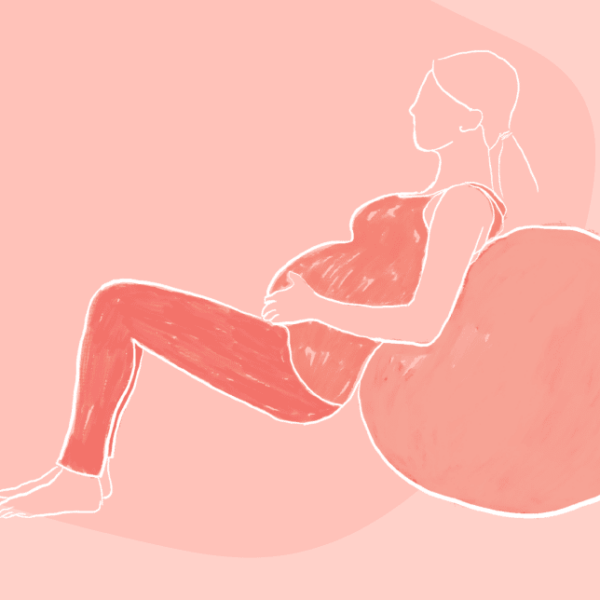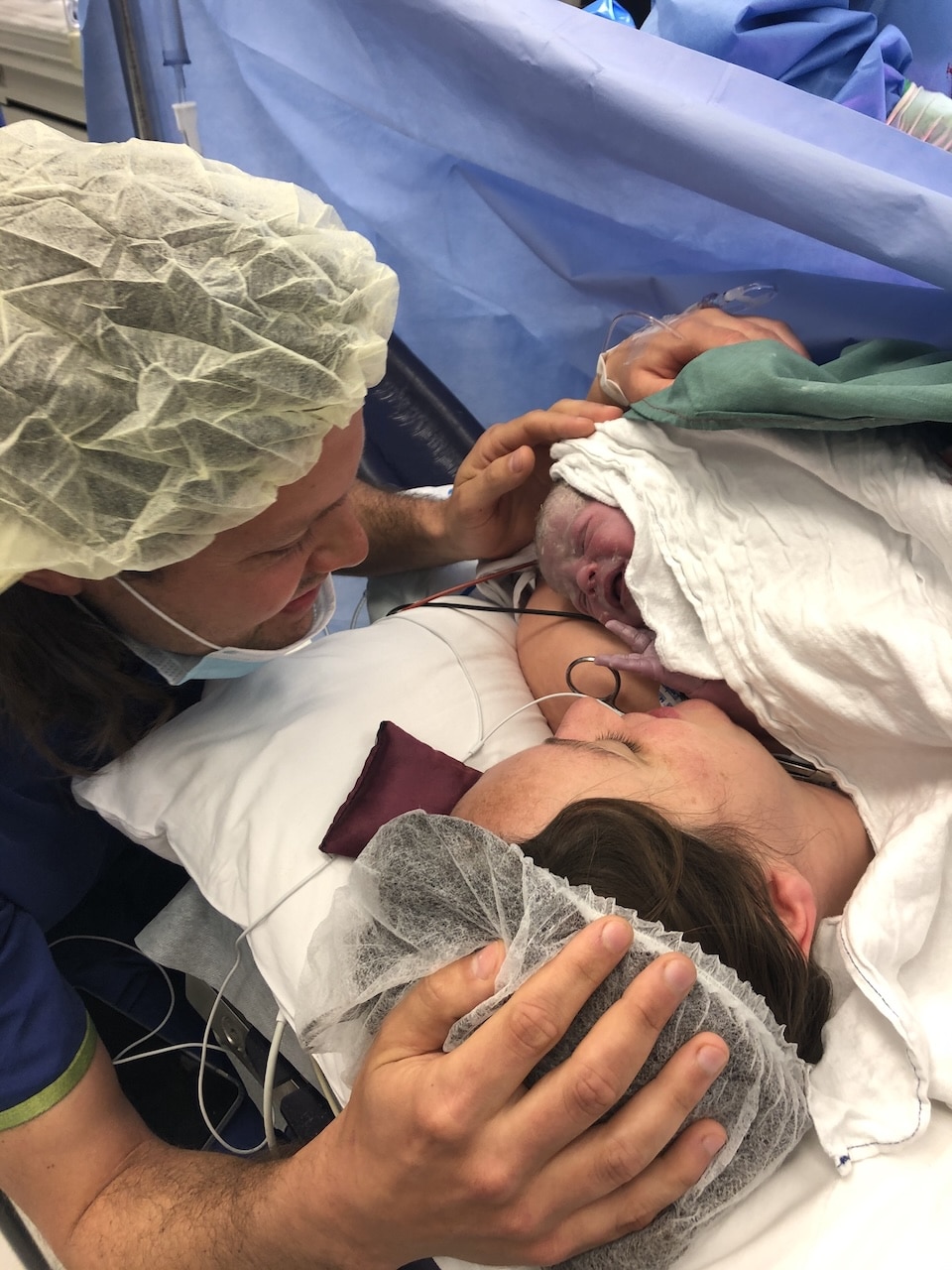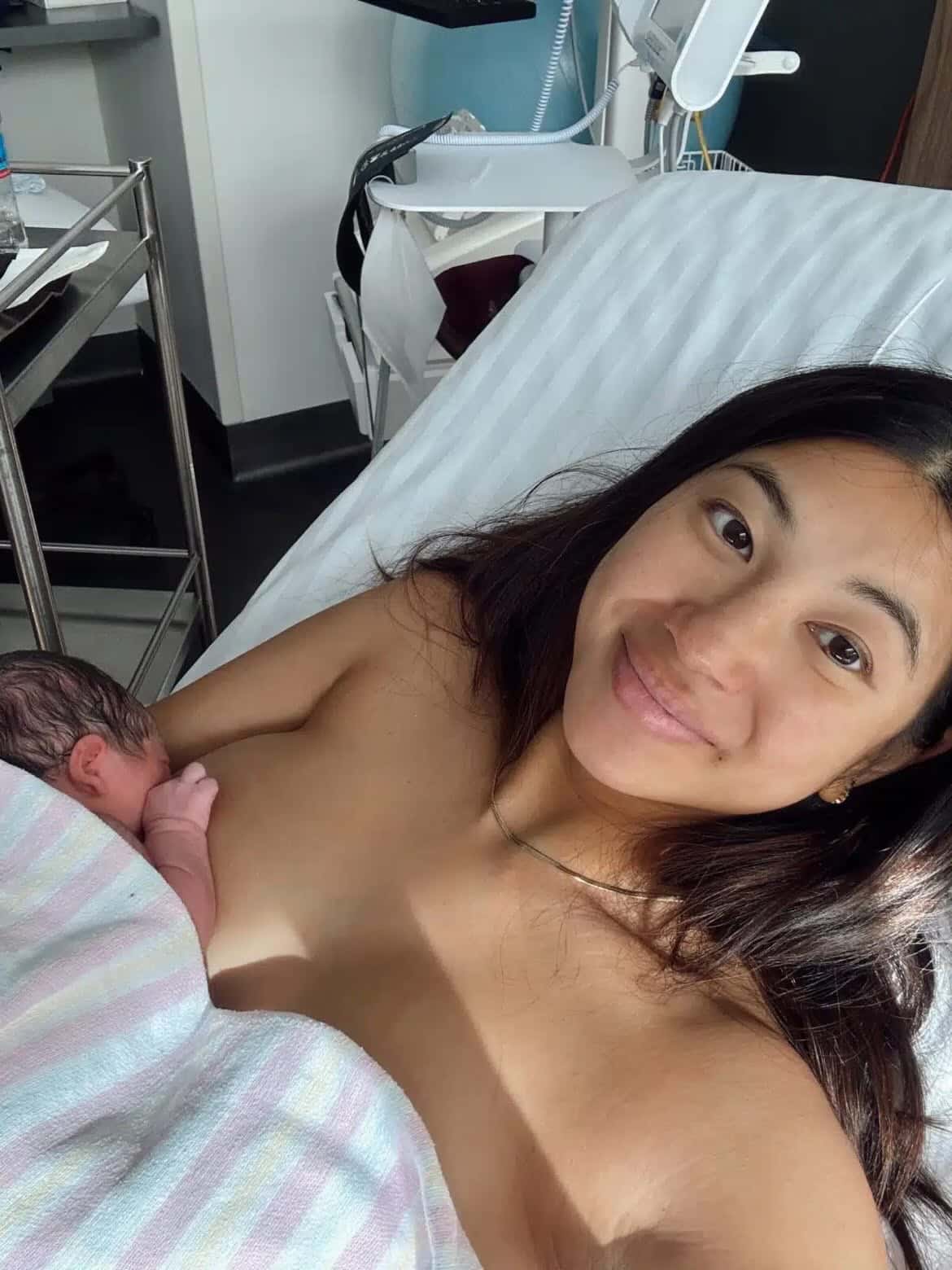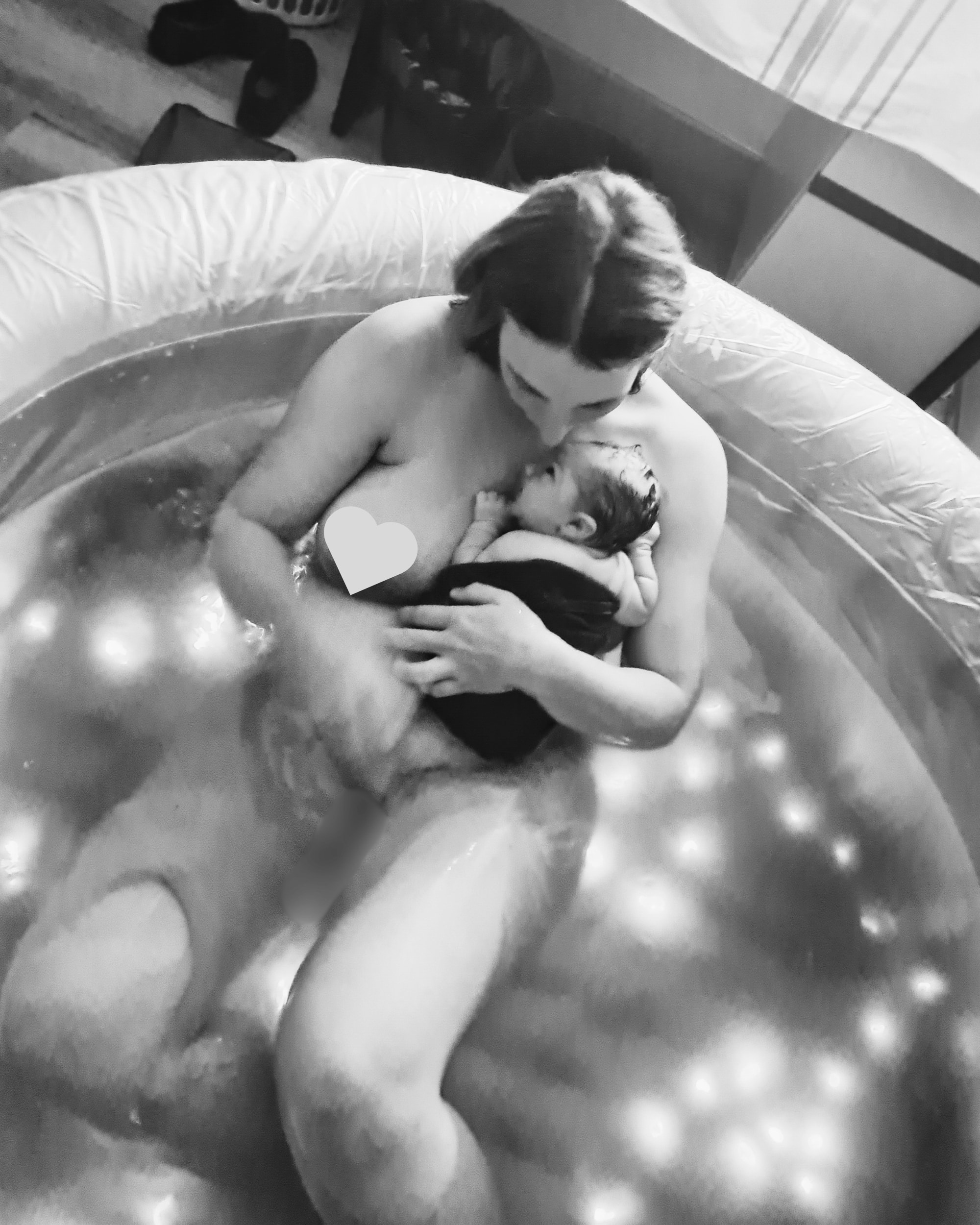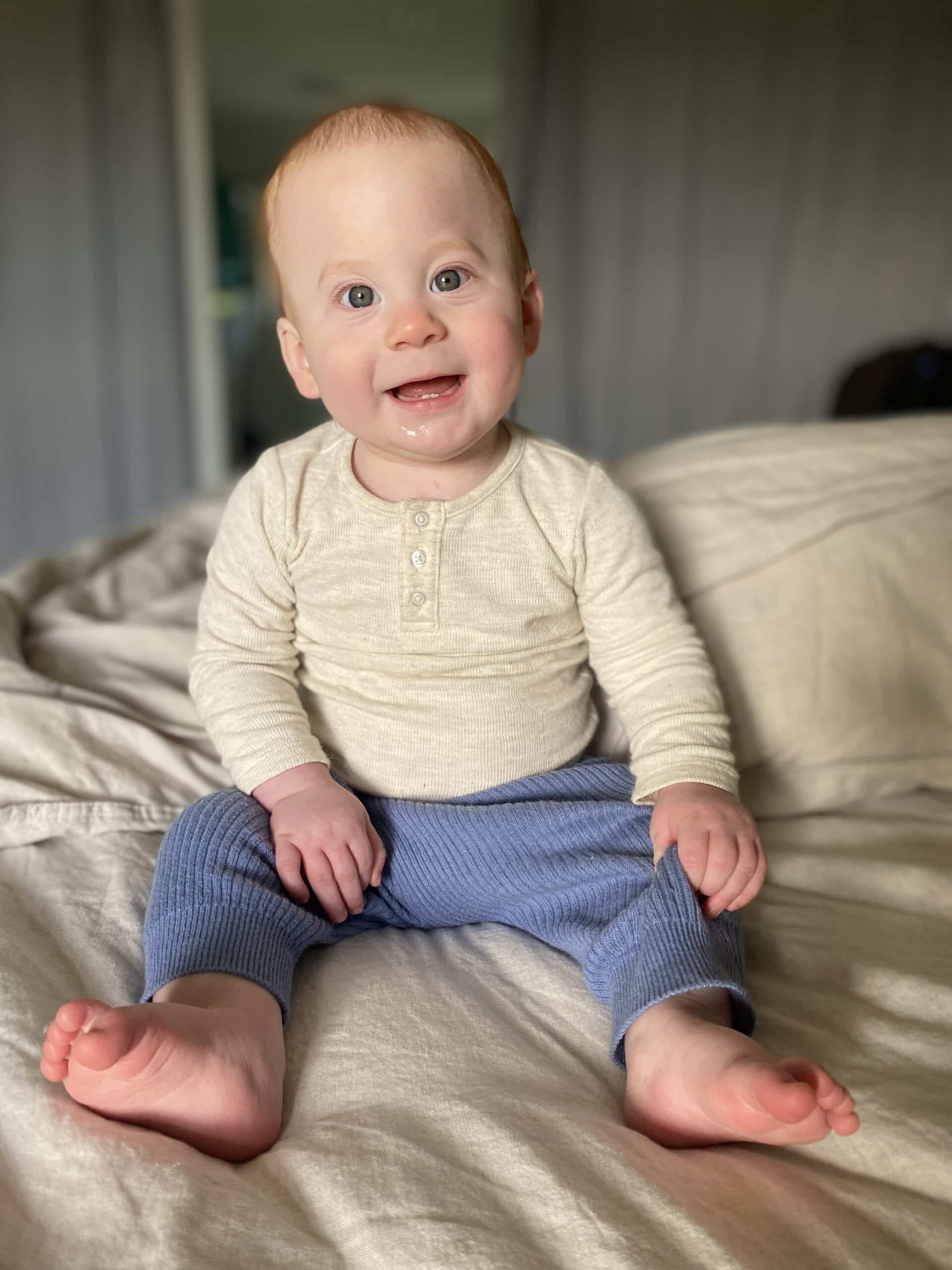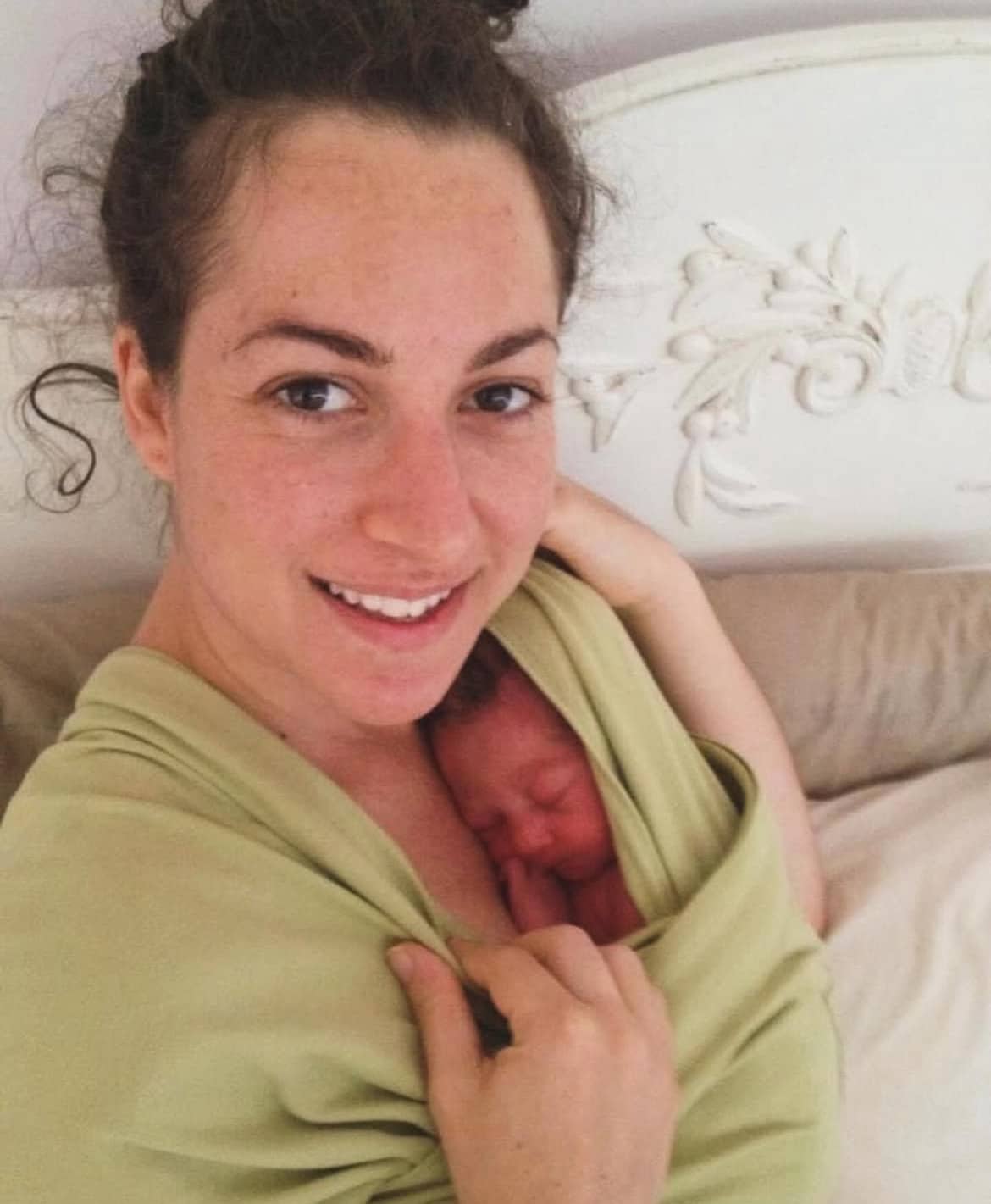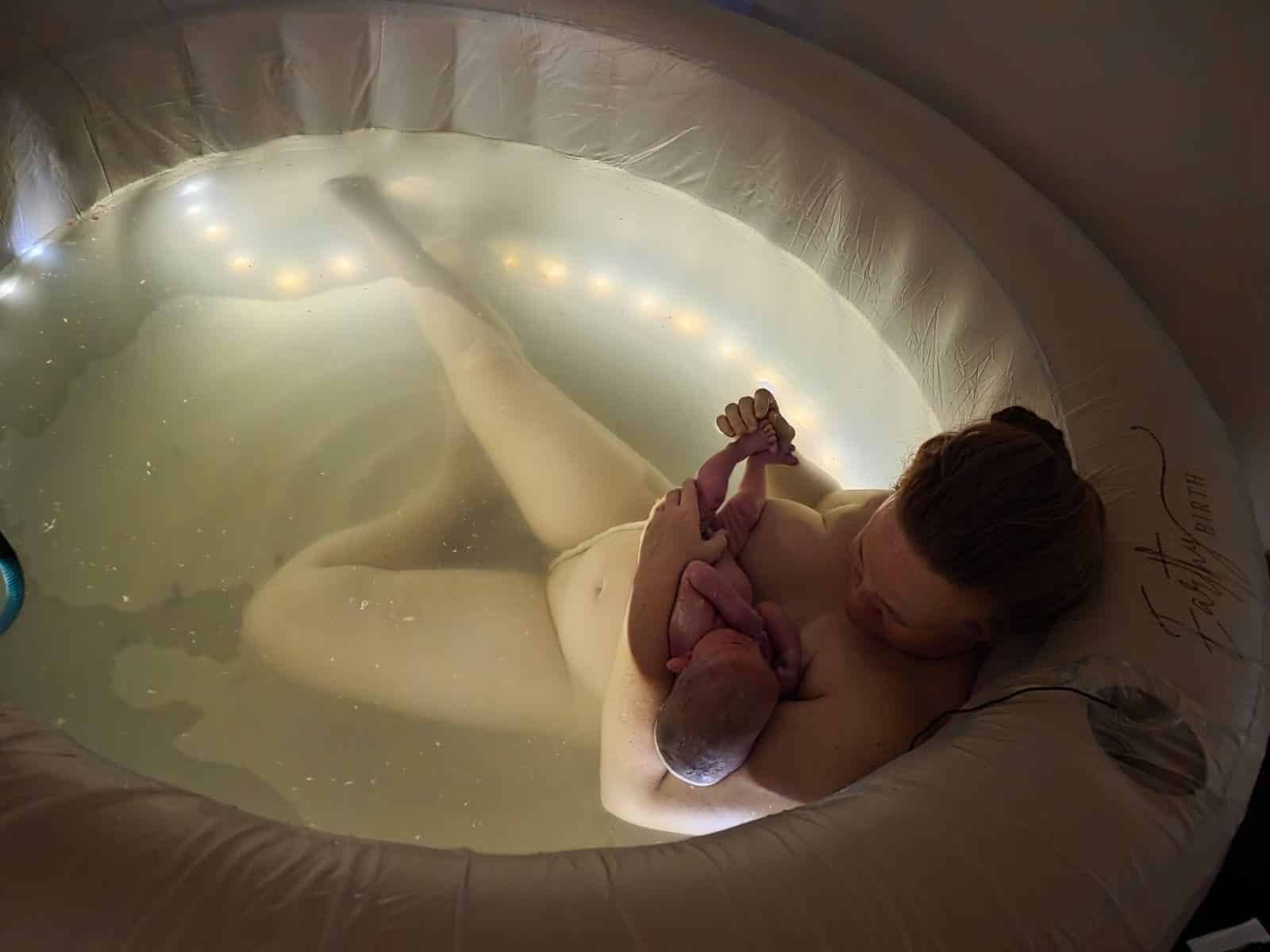Podcasts Lauren Perrett | Posterior baby, postnatal anxiety, healing second birth
EPISODE 576
Lauren Perrett | Posterior baby, postnatal anxiety, healing second birth
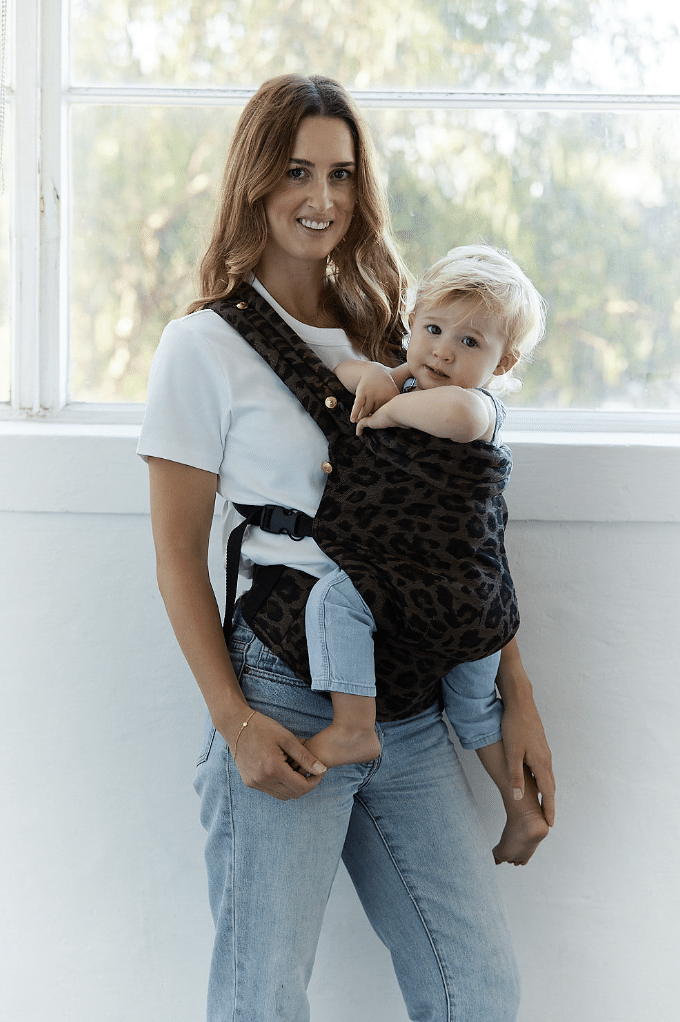
Lauren’s journey to motherhood began in 2020 when she and her husband Tom decided to start trying for their first baby. “We were quite intentional,” Lauren explains. “We went and visited a private obstetrician quite early on in the journey to just get everything in order, make sure all my bloods were right and I was taking all the right prenatals.” However, their path wasn’t straightforward – they experienced an early loss before conceiving Charles, which set the tone for an anxious first pregnancy.
Pregnancy Anxiety and COVID Challenges
Lauren’s first pregnancy was marked by significant anxiety, compounded by the global pandemic. “I was already quite anxious in my thought processes and the what might happen and what could go wrong type of scenarios. And then of course, COVID was happening all at the same time as well, so the world was anxious,” she reflects. Living remotely on a farm with limited support networks, Lauren found herself constantly checking for signs of complications.
The anxiety intensified dramatically at 20 weeks when, during a routine follow-up appointment, a healthcare provider casually mentioned concerning scan results. “She said, ‘oh did anyone tell you about the scan notes from your 20 week scan?’ And I was on my own because it was COVID, my husband was waiting in the car and I said, no what is it? Please tell me. And they mentioned that the results show that my baby had enlarged frontal ventricles of his brain.”
This news, delivered without proper explanation or support, sent Lauren into a spiral of worry. “She just delivered the news as if I would understand what that meant… my mind immediately raised to, there’s something wrong with my baby’s brain.” The lack of continuity in her care meant she was seeing different midwives at each appointment, making it difficult to build trust and receive consistent support.
First Birth Experience: A Challenging Journey
Lauren’s first labour began naturally at the beach when her waters broke. “I felt like some pressure and that there was more water coming out of me around me and I was like, I think my waters have just broken, but it’s hard to tell because I’m in water.” After confirming her waters had broken, Lauren experienced a long, difficult labour complicated by Charles being in a posterior position.
“I was in a significant amount of pain and I can’t recall whether it was at that point or further along in labour that they let me know that my baby was posterior and that’s what was causing the pain,” Lauren remembers. Despite requesting an epidural early in labour, she was told she wasn’t progressed enough and had to try various other pain relief methods first.
“I reckon I had every single type of pain medication you can try. So they started with the sterile water injections… I also had some morphine that didn’t particularly help… gas and air… it wasn’t until, I think it was about 8:00 AM the next day that we had the discussion around epidural.”
After labouring all night, Lauren finally received her epidural and was able to rest somewhat. However, the pushing stage proved traumatic. “I’ve never been able to articulate how exhausted in every cell of my body I was at that point of labour,” she explains. After pushing for nearly two hours with Charles showing signs of distress, the situation escalated quickly.
“They brought an obstetrician in… immediately, your legs up in the stirrups, the lights were on. It felt like a movie. At this point, I felt so detached from reality and from myself… they put forceps in and they’d had to make a little incision… somehow my body just had this incredible surge of energy and just pushed and I screamed and they pulled and he came out.”
Postnatal Anxiety and Recovery
The challenges didn’t end with birth. Lauren developed mastitis due to breastfeeding difficulties, and Charles was found to have a tongue tie that wasn’t diagnosed until his circumcision appointment. More significantly, Lauren began experiencing severe postnatal anxiety with physical symptoms.
“What I developed was very physiological anxiety feelings. So feeling dizzy, feeling like the floor was falling away from me… my brain would automatically go to, I’m gonna fall down and have a seizure.” These fears were rooted in Lauren’s history of seizures a few years prior, making the sleep deprivation and physical symptoms of new motherhood particularly triggering.
“If I went for a walk and I was pushing the pram, I would be constantly worried that if something happens to me and I collapse or faint, my baby’s gonna go into the road and something’s gonna happen to him. So yeah, it’s like a continual spiral of these thoughts and these patterns which really didn’t stop until probably 18 months, two years postpartum.”
Lauren credits her mothers’ group with helping her identify what she was experiencing. “There was a few second time mums in the mothers’ group and they would say, I think it sounds like you could have some postnatal anxiety… I was able to identify what was potentially happening probably four, five months in.”
Second Pregnancy: A Complete Transformation
Lauren’s second pregnancy with Harvey was remarkably different. “I had the most easy going, relaxed pregnancy. I could have wished for like such a stark comparison,” she says. This time, she chose a private midwife in a smaller practice who provided continuity of care and a completely different approach.
“Most of it was just like, how you feeling? Feeling good. Yeah. Good. And then we’d just like chitchat about other stuff… there was no additional layers of medical related care happening. It was very much just like a casual catch up with a friend.”
Lauren also prepared differently, incorporating acupuncture and meditation. “I went and had some acupuncture with a phenomenal physio… she got me into just this most zen chill space. Like having an hour to yourself in a meditative state where you’re taken to like this beautiful beach in this meditation really made me feel so relaxed going into birth.”
Second Birth: Healing and Empowerment
Harvey’s birth was everything Lauren had hoped for. She went into spontaneous labour and immediately knew this would be different. “I had my face mask on, my eye mask on, I sleep with, and I did not take that off until he was on my chest. So I didn’t see anything, which was a really interesting space to be in because it heightened my awareness of everything else.”
The epidural was administered quickly, and Lauren was able to labour peacefully whilst listening to her meditation recording. “Because I was listening to the meditation, ’cause I wasn’t seeing anything, I was just hearing and smelling. It was even more heightened… I felt so at ease and comfortable and relaxed.”
The pushing stage was remarkably quick. “We pushed for I think 15 minutes… he came out within 15 to 20 minutes of pushing, which was really good.” Harvey weighed 4kg, yet there had been no mention of a “big baby” during pregnancy, highlighting how different care approaches can shape the entire experience.
Building Businesses from Birth Experiences
Lauren’s challenging experiences as a new mother directly inspired her entrepreneurial ventures. After a difficult return to work with Charles, she founded Baba Desks, a co-working space with onsite childcare. “I came up with the idea sort of eight months postpartum with Charles after this very clunky return to work… I was like, there’s got to be a better way. Like, I’m working from home. Why would I not stay close to my baby?”
Baba Desks provides “close proximity so that it could nurture that maternal bond, secure attachment, the ability to continue breastfeeding” whilst allowing parents to maintain their careers with flexibility.
Her second venture, Wombee, addresses the challenges of finding and managing mothers’ groups. “I really wanted connection during pregnancy. Like I wanted to find my people that were going through the same experience that I was during pregnancy. I wanted to find them then. And in Australia, you are obviously not put into a mothers’ group until postnatally.”
The app is designed to help mothers find groups and includes AI technology to identify potential mental health concerns. “It’ll be able to pick up on anything that might be even an orange flag and gently guide you to the resources that would help in that scenario.”
Key Takeaways:
Lauren’s story offers several important insights for expectant parents:
- The profound impact of continuity of care and supportive healthcare providers
- How different approaches to pregnancy care can dramatically affect the birth experience
- The importance of recognising and addressing postnatal anxiety early
- The healing potential of subsequent positive birth experiences
- The value of mothers’ groups in identifying and supporting mental health challenges
- How personal challenges can inspire innovative solutions for other parents
Lauren’s journey from traumatic first birth to empowering second birth, whilst building businesses that support other parents, demonstrates the resilience of mothers and the importance of learning from our experiences to help others.
Episode Sponsor
Today’s episode is brought to you by Wombee – the app that’s changing how mothers connect, from pregnancy through every stage of motherhood.
We all know that finding your village as a new mum can feel overwhelming. Traditional mothers groups don’t start until 6-8 weeks after birth, but what about all those questions and moments of uncertainty before then? That’s where Wombee comes in.
Created by BubbaDesk founder and mum Lauren, Wombee connects you from the moment you need it most – during pregnancy. Before the sleepless nights, before the 3am questions, before those “wait, is this normal?” texts to anyone who might be awake.
Whether you’re looking for a group or already have one and want a better way to stay organised, Wombee makes it easy. No more 47-message group chats trying to organise a simple coffee catch-up. Wombee’s smart matching and built-in meet-up planner takes the mental load out of staying connected, so you can focus on what matters most.
The best part? Wombee is completely free and available right now on the App Store. Just search Wombee – that’s “womb” like your uterus, and “ee” like the sound your baby makes at 3am. Easy to remember, right? Wombee – helping you build your village and take the pressure off finding support, because every mum deserves her people.
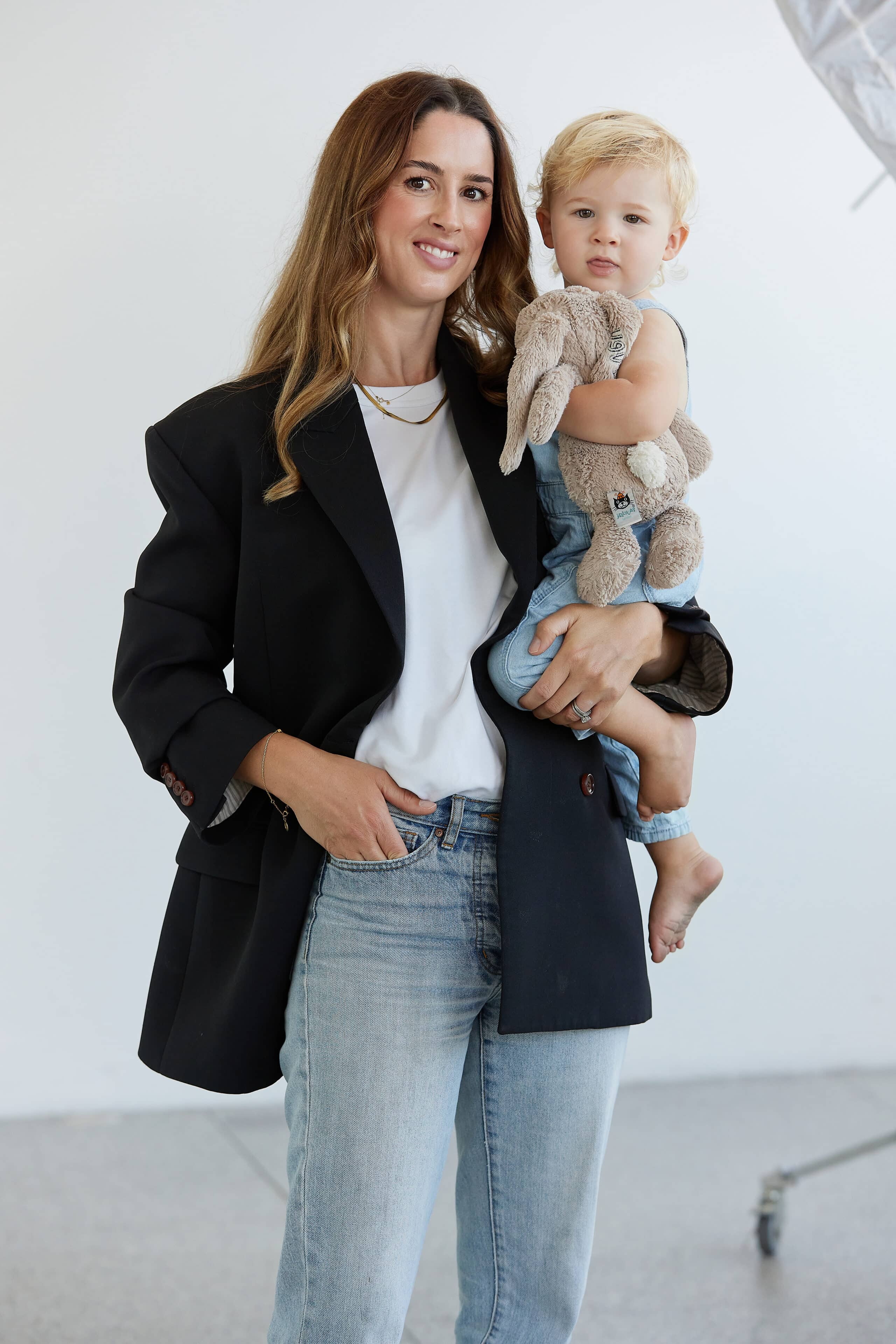
Image by Evoto
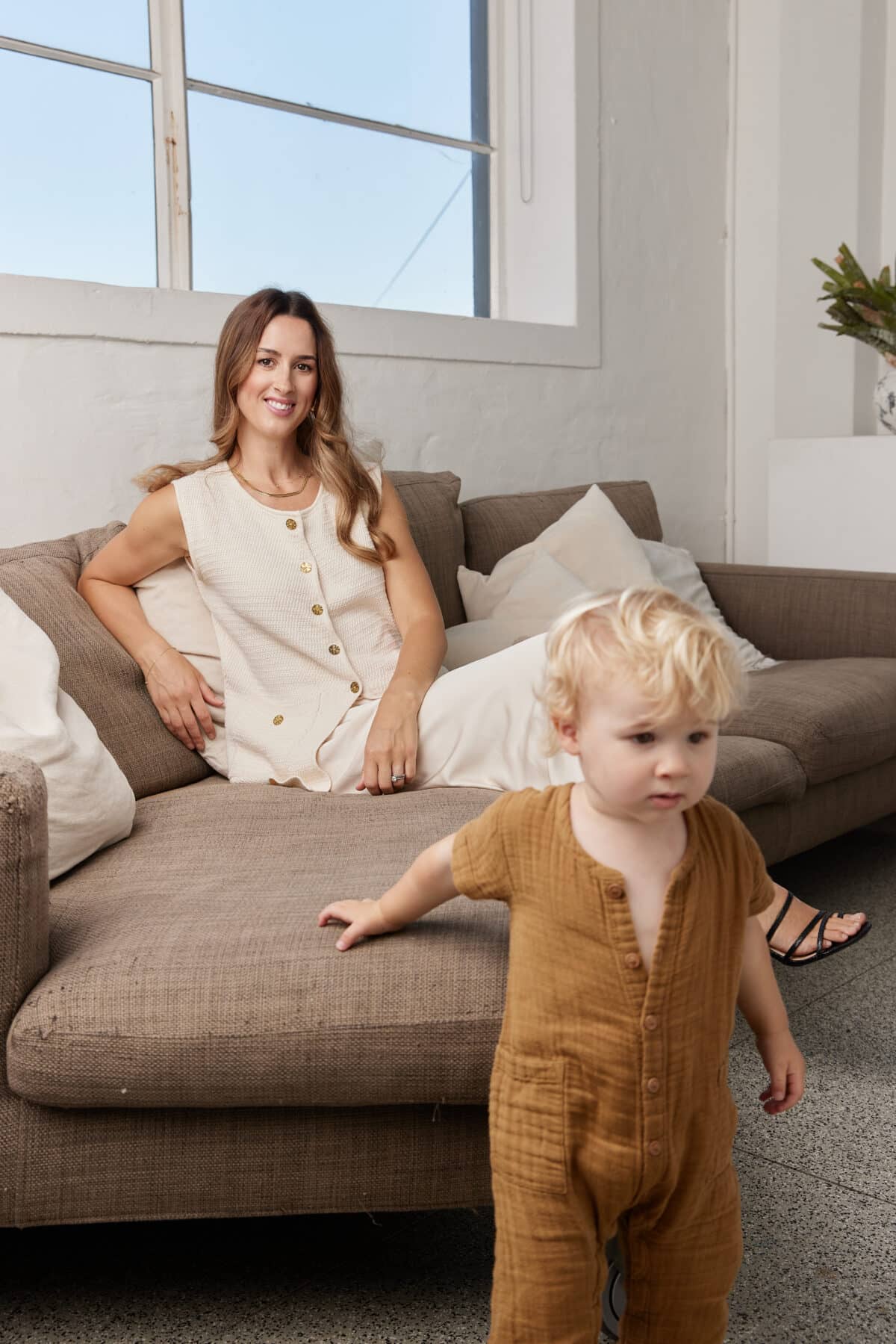
Image by Evoto
Categories
Related Products
-
The Birth Class
108 reviews$249.00The empowering online childbirth education program that will help you confidently prepare for birth.
Join the conversation
Sign up to get the latest updates, freebies, podcast releases straight into your inbox
@AustralianBirthStories
Follow along with us
@AustralianBirthStories
Follow along with us
@AustralianBirthStories
Follow along with us
@AustralianBirthStories
Follow along with us
@AustralianBirthStories
Follow along with us
@AustralianBirthStories
Follow along with us
@AustralianBirthStories
Follow along with us
@AustralianBirthStories
Follow along with us
@AustralianBirthStories
Follow along with us
@AustralianBirthStories
Follow along with us
@AustralianBirthStories
Follow along with us
@AustralianBirthStories
Follow along with us
